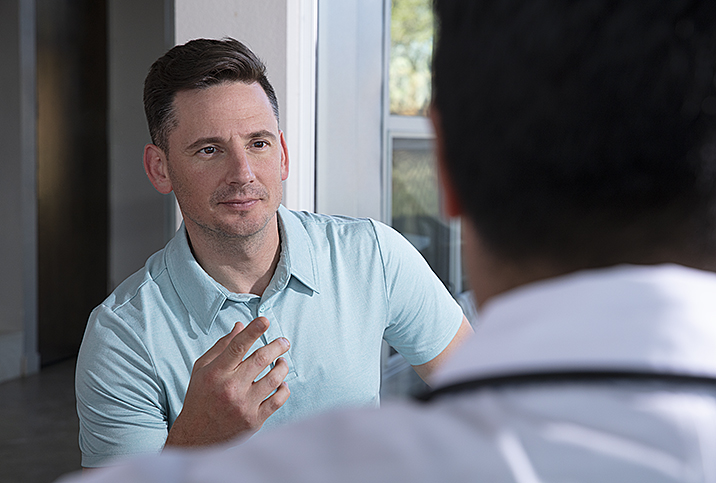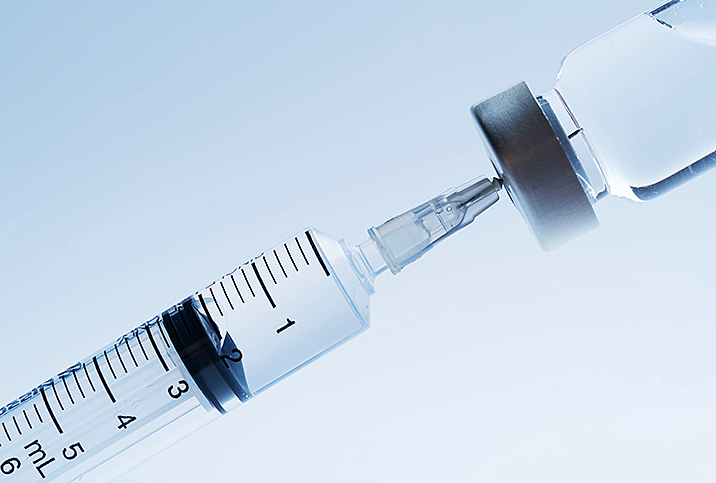6 Questions to Ask Your Doctor if You Have HPV

Human papillomavirus (HPV) is the most common sexually transmitted infection (STI) in the United States, where it affects nearly 80 million Americans. If you've been diagnosed with HPV, knowing more about this infection can help you avoid transmitting it to others while also reducing your risk for related cancers.
If you have HPV, or if you are a man who's worried about his HPV status, make sure you ask your doctor plenty of questions. We have six to get you started.
1. Will I get genital warts?
Genital warts are a common symptom of HPV, but not everyone with HPV gets them. The Centers for Disease Control and Prevention (CDC) states that prior to the rollout of the HPV vaccine, genital warts affected an estimated 340,000 to 360,000 people with HPV every year.
HPV manifests in more than 100 strains, but most genital warts associated with it are caused by HPV strains 6 and 11. Warts from HPV can appear anytime after your infection—years later, even—though some people with HPV may never get warts. Any warts you do get from HPV usually resolve on their own within several days, or they can be treated with topical creams and gels prescribed by your doctor.
2. How long will I have HPV?
HPV rarely sticks around for a lifetime and is usually cleared by your immune system within one to two years without treatment. Keeping your immune system strong is key to naturally flushing out HPV, given there are no treatments available for HPV infections. To boost your immunity, get plenty of quality sleep, eat highly nutritious foods, exercise regularly, stop smoking and keep stress to a minimum.
3. How do men know if they have HPV?
There is no HPV test available for men, which means they may have the infection and unknowingly pass it to sex partners. As in women, HPV does not always cause symptoms in men, which can make it extremely difficult to know when an infection is present. According to the CDC, some healthcare providers offer anal Pap tests to men at increased risk for anal cancer, which includes men with HIV or who engage in anal sex.
If you're a man and think you may have HPV due to meeting one or more risk factors, talk to your doctor as soon as possible to discuss your screening options.
4. Will I need to have safe sex for the rest of my life?
If you've been diagnosed with HPV, practicing safe sex is important. You need to observe safe sex practices so you don't transmit the virus to sex partners, even if you think the virus has cleared from your system. Consider having a conversation with your partner(s) about your HPV diagnosis and safe sex, so they understand the potential risks involved.
During sex, use condoms or dental dams to reduce the risk of transmission, and continue to see your doctor regularly for Pap tests and medical exams. Also, wash your genitals immediately after having sex, which can help clear away any bacteria or viruses that may ultimately lead to an infection.
5. Will my HPV lead to cancer?
HPV may be responsible for more than 90 percent of anal and cervical cancers, an estimated 70 percent of vaginal and vulvar cancers, and more than 60 percent of penile cancers, according to the CDC. However, cancer from HPV can often take years or decades to develop, which is why it's critical to see your doctor regularly for medical exams. The people who tend to be at the highest risk for developing cancer from HPV are those with a weakened immune system, especially people with HIV and AIDS.
6. What are signs my HPV is progressing into cancer?
Many cancers that develop from HPV do not show symptoms until their advanced stages, so you may not know you have cancer until it's too late. If you have HPV, visit your doctor regularly to be screened and examined for signs of cancer. It may also help to familiarize yourself with signs of cancers commonly associated with HPV, including cervical, vaginal, vulvar, anal and penile cancers.
According to the Office on Women's Health, women between the ages of 21 and 65 should receive Pap tests regularly regardless of whether they have HPV, unless they have had a hysterectomy. If you have any questions about HPV that aren't listed here, don't hesitate to ask your doctor so you can continue to live safely with HPV.


















